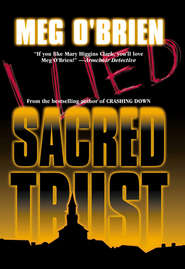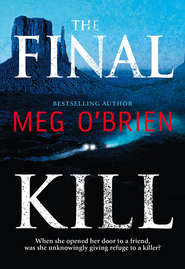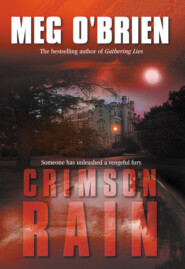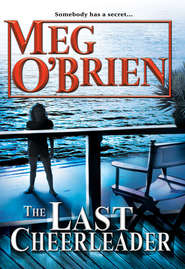По всем вопросам обращайтесь на: info@litportal.ru
(©) 2003-2025.
✖
Gathering Lies
Автор
Год написания книги
2018
Настройки чтения
Размер шрифта
Высота строк
Поля
“You seem to know her better than any of us,” Dana answered. “What do you think?”
I wasn’t certain. I no longer felt I knew my old friend, and could only ascribe this to time passing, personalities changing. I’d grown up, while Timothea Walsh had grown older. I had no idea of the forces that had moved through her life, twisting and shaping it in ways perhaps different, but just as powerfully as forces that had shaped mine.
We turned a bend in the path, and I felt myself shiver.
“You feel it, too?” Dana asked. Her dark hair moved in fine wisps over her forehead as she turned her head from one side to the other, seeming to sniff the air.
“Too?”
“This spot,” she said, pulling her fringed shawl more tightly around her. “It’s very strange.”
She was right. The air was unseasonably warm, the sky still that strange, heavy amber. But there was something else along this one patch of trees. Every time I passed it, my legs would begin to feel weak, as if I could barely move. It was like slogging knee-deep through mud, and it lasted a few yards, then was gone.
“Old Indian ground,” Dana said. “I read about it in the library here. Energies like that, you know, have a way of lingering.”
My legal training had not prepared me for this kind of thinking, yet I couldn’t deny that something about this spot was unnatural.
“There may even have been mass murders here,” Dana continued in a low voice, “when northern tribes raided down here, killing the men and taking wives and slaves back with them.”
Her words echoed something from time past. What was it? Where had I heard this before?
It took a moment, but as we continued to walk, my thoughts flashed back to the year I turned eighteen. And Luke.
Luke Ford’s family owned Ransford, the larger home on Esme Island back then, and during the four summers I spent here, we had worn a path through the woods from visiting back and forth. Luke had commented more than once about the strange energies in the woods around here. How had I forgotten?
Luke had been my first love, and the exact opposite of Ian. Ian was all business, red hair cropped short, demeanor dead serious, while Luke joked, teased, flirted outrageously, and in general embraced life fully. He wore his thick, almost kinky dark hair in a ponytail that ended midway down his back. When he didn’t have it contained that way, it flowed around his face, framing and softening features that were sharp and angular—more striking than handsome.
I was seventeen the last summer I spent on Esme Island, and I could not get enough of Luke. Having flirted our way through the three previous summers, lightly touching each other, then pulling back as if burned by a hot poker, we were primed that year.
We started out the first day smiling awkwardly at each other, then glancing away; our eyes, when they met, spoke too much of our feelings. One day I was walking in the woods, looking for a quiet place to write. Luke hid in a tree and nearly startled me to death, dropping to the ground in front of me. Then he whisked me into his arms with a great holler and whoop.
“Sarah! My God, I missed you this year!”
We fell to the ground together, laughing, and from there on out, I was all his. His tongue parted my lips, while a hand came between my legs to create a passage there, as well.
When it was over, my back was scratched from dry pine needles on the forest floor. The discomfort I suffered was well worth it, however. It had been my first time, and for days I was consumed by memories of Luke stroking the entire length of my body till I was nothing but a quivering mass. I sought him out, sought that feeling over and over. The woods became our trysting place, while I became Guinevere and he Lancelot, having an illicit affair behind King Arthur’s back.
There was no king, of course, to cuckold. Only our parents, who thought we were still “just friends,” enjoying each other’s company on a lonely island every summer with few inhabitants, no television, no movies, and nothing, really, to do.
If they had known what we were up to, there would have been hell to pay. Both my parents and his were conventional, his mother almost saintly. This forbidden aspect only served to heighten our sense of danger, and therefore our lust. We experimented in ways neither of us ever had, and when we parted at the end of the summer, it was—at least for me—with a feeling of being wrenched from my soul.
It took me a long while, after that—years of law school, work and aimless dating—to fall in love again. That it was Ian I fell in love with is a mystery to me now. I never gave myself fully to him, and many’s the time I felt obligated to call up memories of that summer with Luke, to convince Ian that he’d satisfied me—that I’d felt all I was obligated to feel.
After that year, I didn’t see Luke again, though I heard about him a few times through my mother, who exchanged Christmas cards with his family for a time. Luke, Mrs. Ford wrote, had traveled in Europe after college, then worked in New York City. She never said exactly what he did for a living, and I remember thinking that with his lively personality he might be involved in anything from acting to simply hanging out, “following his bliss.” As far as I knew, he’d never married.
I wondered if he still came to the island, and if I’d see him here. Not likely, after all these years. Still, the thought brought with it a small jolt of excitement—something I dismissed immediately as a visceral carryover from adolescence, nothing more.
“Where did you go?” Dana asked, snapping me out of my reverie.
“Hmm? Oh, sorry. I was thinking.”
“Odd weather, isn’t it?” she said.
We were nearing the farmhouse, with its gardens leading down to the rocky beach. She scanned the horizon with a frown. “The water seems choppy, today. Odd, since it’s so warm.”
“I was just thinking that myself.”
Dana laughed, though the sound came out a bit hollow. “I lived in L.A. once, and we’d call this earthquake weather.”
“Well, they do keep warning us that the Big One’s coming,” I said.
A lush scent of roasting pork and freshly cooked vegetables drifted our way from the farmhouse. We stepped up our pace, and inside the kitchen we took seats on picnic-style benches at a long table, with the other writers and Timothea Walsh. Timmy and I had talked the first day I’d arrived, but not since, except to say hello in passing. She had asked about my mother, and I’d told her Mom was living with her sister in Florida, and doing well.
“I’m so sorry about your father,” Timmy had said. “But I must say…”
She had paused, then shaken her head and clamped her lips shut.
“You think she’s better off?” I pressed.
She fluttered a thin, white hand at her chest. “Well, Sarah, it’s not for me to say…but your mother’s life was never an easy one.”
I thought she’d meant because of my father’s tendency to work such long hours, so I just nodded, and we both changed the subject.
Now I looked across the table at Timmy and wondered. She kept glancing at me when she thought I wasn’t watching. I’d feel her eyes on me, and when I’d look up to meet them, she’d quickly turn away.
Lucy, the cook, was at the stove ladling out food. The daytime office staff had already left on the Friday night ferry for their homes on Whidbey. The ferry, which was privately owned and only stopped at Esme two days a week, would come again on Monday morning, bringing them back. Any other time, we couldn’t get off the island if our lives depended on it.
As, of course, they soon would.
The dinner conversation droned on and on. Another long evening, I thought, picking at the last morsel of roast pork on my plate. Dinner, then coffee in the living room. People reading their works-in-progress to each other, critiquing each other, sometimes being careful and delicate in their comments, other times hard as nails.
Though, come to think of it, only Amelia and Dana had read aloud in the five days we’d been here. And Amelia was usually the only hard-nosed critic. Even Grace was often silent when either woman read, as if she really didn’t know what to say.
The thought struck me suddenly that Grace might not be a writer. Almost immediately, I shook that off as silly. I’d been living in my mind too much of late, seeing shadows in every corner.
Still, I had thought I’d feel safer here on Esme Island than I did. There were moments, in fact, when I felt certain I was being watched.
“This warm weather is so wonderful!” Jane offered from across the table.
Jane was tiny, with short brown hair and a self-deprecating demeanor. I wondered if her size, which was not more than five foot one, caused her to feel incapable of making a mark on the world.
“I thought it would never stop raining this winter,” she went on. “In fact, at one point I thought if I had to put boots and raincoats on one more child, just one more day, I’d go crazy.”
“How many children do you have?” Timmy asked.
“Only two. It just seems like an army sometimes.” Jane smiled uncertainly. “That’s why it’s so good to be here. My husband gave me this two-week vacation as a birthday present. He’s working from home while I’m gone, so he can watch the kids.”
“You’re only here for two weeks?” I asked curiously. “I understood we’d all been invited for a month.”









